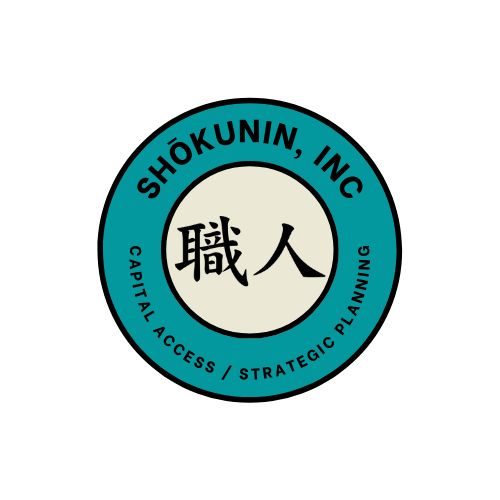The strength of a nation lies not just in its ability to innovate but in its capacity to plan thoughtfully for the future. This is done by balancing complex priorities with empathy and foresight.
Recent events—from labor shortages devastating our food chain to misguided decisions stalling infrastructure progress—highlight how vengefulness and political posturing undermine our shared goals. Instead, we must embrace decision-making rooted in competence, collaboration, and nonpartisan wisdom.
The Food Chain is in Crisis, and It Is About to Get Worse
The recent immigration sweeps in the central parts of California have created ripple effects that reveal the fragility of our agricultural system. This area, known as the Central Valley, produces over 25% of the nation’s food, including more than 40% of its fruits, nuts, and vegetables. It is one of the most vital agricultural regions in the country.
With 50-75% of field workers now absent because of these sweeps, crops risk rotting in the fields, food prices will spike, and immigrant families—many of whom are integral to our communities and contribute significantly through taxes and labor —are living in fear. This level of disruption doesn’t just harm those targeted; it affects every American at the grocery store, and every child denied access to education because their parents are afraid to leave the house. Denying children an education not only deepens poverty but can lead to higher rates of crime, creating a vicious cycle of issues that harms entire communities while reinforcing tired and thoughtless stereotypes.
This situation underscores the consequences of shortsighted, reactionary policies. Instead of addressing immigration reform pragmatically or ensuring our food supply remains secure, leadership has chosen a path of chaos. The result? Economic and social harm to communities already on the edge.
Infrastructure Paralysis
Infrastructure presents another glaring example of poor planning. My article on electrical infrastructure and saving our food supply chain from 2023 outlined how vital power generation and transmission are for supporting data centers, renewable energy, and the next stage of economic growth. Yet, much like the food chain crisis, political infighting and lack of strategic vision are stalling critical projects.
Instead of assembling coalitions of the best minds—engineers, financiers, environmentalists, and local leaders—to advance a national infrastructure plan, political grudges and short-term wins motivate decisions. This leads to delays, cost overruns, and missed opportunities to secure America’s future as a leader in technology and energy.
The Common Thread: Leadership Choices Matter
At the heart of these crises is a failure of leadership. Whether it’s agriculture or infrastructure, these issues require decision-makers to prioritize competence over political loyalty. Good governance means surrounding yourself with experts who challenge assumptions, explore alternative solutions, and act in the public’s best interest, not just your voter base.
Contrast this with what we see now: vengefulness, divisiveness, and reactionary policies. The focus isn’t on building a stronger foundation for America but settling scores and appealing to factions. This approach doesn’t just alienate talented individuals who could drive change; it actively harms industries critical to our daily lives.
A Better Path Forward: Collaboration Over Chaos
Leaders can take a nonpartisan approach to these challenges. Instead of targeting vulnerable communities, we could create a path for immigration reform that stabilizes our workforce while ensuring humane treatment. Instead of delaying infrastructure projects with unnecessary red tape or partisan bickering, we could assemble the smartest people—regardless of political leanings—to develop plans that address our energy needs for decades to come.
The solutions are there. The resources are there. What’s lacking is the will to lead with wisdom instead of vengeance.
The food chain and infrastructure crises are warnings about the cost of poor leadership. These are not abstract problems; they affect every American. We can’t afford to let short-term political games dictate our nation’s future. It’s time to demand leadership that prioritizes intelligence, collaboration, and the greater good.
Take Action
It is your job to be informed, and it is your job to act. What you don’t choose to change, you accept. The crises affecting our food chain and infrastructure aren’t abstract problems—they impact your family, your community, and your future. You have the power to push for smarter policies and better leadership.
Write or email your congressperson today to demand pragmatic immigration reform and smarter infrastructure planning. Use the links below to find your representative and make your voice heard:
-
Find your U.S. Representative: https://www.house.gov/representatives/find-your-representative
-
Contact your U.S. Senator: https://www.senate.gov/senators/senators-contact.htm
-
Tips for Writing Effective Letters: https://www.congress.gov/resources/display/content/How+to+Contact+Your+Member+of+Congress
Inform Yourself
Understanding the real issues behind these crises is critical. Accessing non-partisan resources can help you form an informed opinion and engage effectively with your representatives. Consider the following:
-
Fact-Checking Websites:
-
FactCheck.org: https://www.factcheck.org
-
PolitiFact: https://www.politifact.com
-
-
Immigration and Workforce Information:
-
Migration Policy Institute: https://www.migrationpolicy.org
-
Pew Research Center – Immigration: https://www.pewresearch.org/topics/immigration/
-
-
Infrastructure Policy Insights:
-
Brookings Institution – Infrastructure: https://www.brookings.edu/topic/infrastructure/
-
American Society of Civil Engineers: https://www.infrastructurereportcard.org/
-
-
Bipartisan News Sources:
-
Reuters: https://www.reuters.com
-
AP News: https://apnews.com
-
-
Congressional Reports and Public Records:
-
Congressional Budget Office: https://www.cbo.gov
-
GovTrack.us: https://www.govtrack.us
-
By relying on these resources, you can cut through partisan noise, understand the facts, and advocate for well-informed policies that benefit everyone.
This is not the time to be silent or passive.
Every email, phone call, and vote matters.
Take action today— A leadership that prioritizes wisdom and collaboration starts with you.



